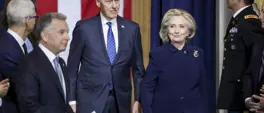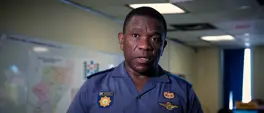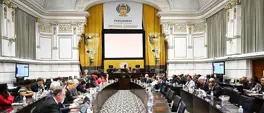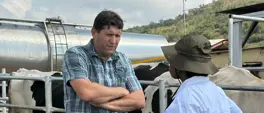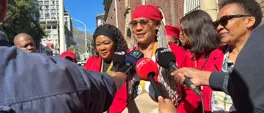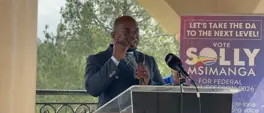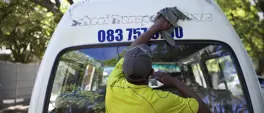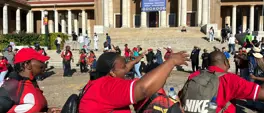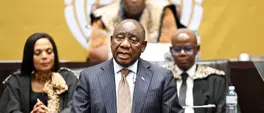TRC inquiry: Over 20 families seek damages for SA gov’s failure to investigate Apartheid-era crimes
Kgomotso Modise
10 November 2025 | 8:04In May, President Cyril Ramaphosa established the Judicial Commission of Inquiry into the Truth and Reconciliation Commission to be chaired by retired Justice Sisi Khampepe.
- Truth and Reconciliation Commission (TRC)
- South African Police Service (SAPS)
- National Prosecuting Authority (NPA)
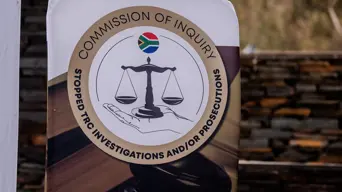
For decades, South Africa has been seen by the world as the big brother of the reconciliation project - a nation that managed to overcome a horrific past of apartheid, a gross violation of human rights, and forge a sense of unity.
But a story less often told is how some of the country’s liberation leaders, the very people who raised their fists in the air shouting “Amandla!”, who kept hope alive for the masses as the regime unleashed its cruelty are now alleged to have sabotaged that very reconciliation project.
In May, President Cyril Ramaphosa established the Judicial Commission of Inquiry into the Truth and Reconciliation Commission (TRC), chaired by retired Justice Sisi Khampepe. She is assisted by retired Northern Cape Judge President Frans Diale Kgomo and Advocate Andrea Gabriel SC. If you haven’t been following politics, you might think this commission appeared out of nowhere. But it isn’t a random initiative, it was prompted by a R167 million lawsuit.
About 24 families have been seeking damages from the government for its failure to investigate apartheid-era crimes after the TRC.
Some of these families are relatives of anti-apartheid activists Fort Calata, Sparrow Mkhonto and Sicelo Mhlauli - members of the Cradock Four.
One of the conditions of the lawsuit is that the government establish a commission of inquiry to determine whether attempts were made to prevent the investigation and prosecution of apartheid-era crimes. This demand stems from long-standing allegations of political interference in such cases. The commission’s mandate covers the period from 2003, when Thabo Mbeki was president.
One of the most memorable events during Mbeki’s administration was his public spat with the then head of public prosecutions, Advocate Vusi Pikoli, who accused him of interfering in and actively preventing the prosecution of TRC cases, an allegation Mbeki vehemently denied. Shortly afterward, Mbeki suspended Pikoli, citing a breakdown in the working relationship between him and then Minister of Justice and Constitutional Development, Bridget Mabandla.
When Archbishop Desmond Tutu handed over the TRC’s final report in 2003, around 800 perpetrators of apartheid-era crimes were pardoned, while more than 3,000 cases were referred to the police and the National Prosecuting Authority (NPA) for further investigation and prosecution. Now, 30 years since the original TRC was established, many of the suspects have died and virtually none of the cases have reached court.
In what some have dubbed “TRC 2.0,” Mbeki, Pikoli and Mabandla will be among those called to testify.
The commission has stated that both former and sittingpresidents, National Directors of Public Prosecutions, and Ministers of Justice will be summoned to take the stand.
However, President Ramaphosa has been cautious in defining the scope of the commission’s work by setting very specific terms of reference.
“The Commission must inquire into, make findings, report on, and make recommendations on:
whether, why, to what extent, and by whom attempts were made to influence members of the South African Police Service or the National Prosecuting Authority not to investigate or prosecute cases identified by the Truth and Reconciliation Commission;
whether any members of the SAPS or NPA improperly colluded with such attempts to influence or pressure them;
whether any action should be taken by an organ of state, including possible further investigations or prosecutions of people who may have acted unlawfully; and
whether the payment of any amount in constitutional damages to any person is appropriate.”
The commission has emphasized that this is not a rerun of the original TRC. Its focus will be limited to the 3,000 cases referred to the NPA for prosecution in 2003.
However, there have already been hurdles leading up to the start of proceedings. The president gave the inquiry six months from May to complete its work - but nearly six months later, it is only just beginning.
This delay is partly due to alleged non-cooperation from government departments in responding to the commission’s requests. Justice Khampepe is expected to address these challenges before the first witness - linked to the 24 families behind the lawsuit - takes the stand.
While the outcome of this commission could reshape the legacies of some key figures, more importantly, it must confront the lingering questions and suspicions that families have carried for decades.
Get the whole picture 💡
Take a look at the topic timeline for all related articles.
Trending News
More in Politics
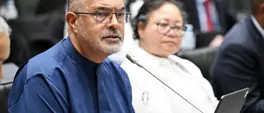
27 February 2026 18:30
SARS eyes R500 billion windfall: Kieswetter calls for more resources to close tax gap

27 February 2026 16:05
EFF labels Paul O'Sullivan a 'fugitive', files criminal complaint after committee exit
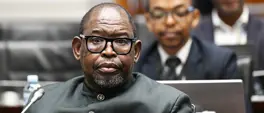
27 February 2026 14:15
Treasury rejects calls to scrap B-BBEE amid GNU friction over economic growth
